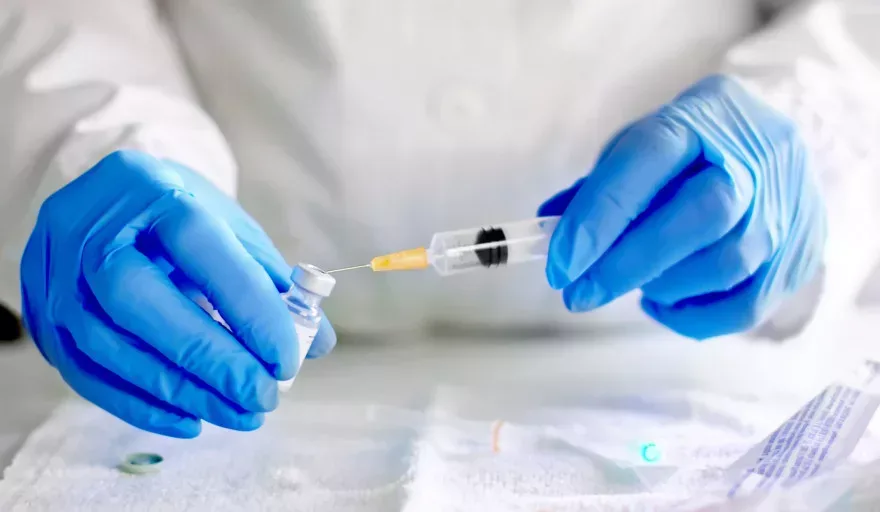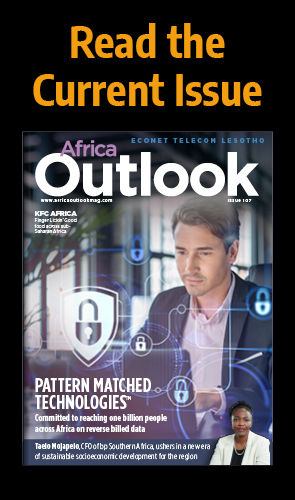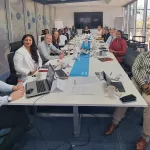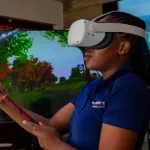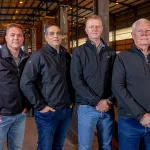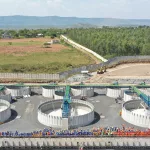Her Excellency Aïssata Issoufou Mahamadou, First Lady of the Republic of Niger, speaks to us about the many life-altering but preventable tropical disease in Niger, and how very little global attention is devoted to treating them.
INTRODUCTION
Malaria and neglected tropical diseases, or NTDs, are not always discussed in parallel.
After all, one is well known – the global health community has worked to eliminate it for decades. The others are a group of diseases that have been overlooked on the international stage until the most recent decade.
However, there are vast similarities between the challenges posed by malaria and many NTDs, which we should use to our advantage when combatting them. Perhaps the most apparent similarity of all: these are life-altering diseases that are preventable and treatable.
UNDERFUNDED AND LACKING POLITICAL SUPPORT
Despite the low cost of treatment for some NTDs, as little as half a dollar per person per year, the fight against this group of diverse diseases is consistently underfunded and does not attract the same attention as other prominent diseases.
Over 1.5 billion people worldwide suffer from an NTD, both directly and indirectly. This means that as well as the impact on their health, people affected by NTDs and their families can be victim to prejudice, loss of education or work.
An even larger proportion of people are at risk of malaria; approximately half the world’s population, which can also result in lifelong economic consequences for those affected. Furthermore, these diseases and their impact on society hinders global progress towards achieving the Sustainable Development Goals, universal health coverage and the overall economic development of nations.
CONTROLLABLE NTDS
These six NTDs can be controlled, even eliminated, through mass administration of safe and effective medication:
- Dracunculiasis (Guinea Worm Disease)
- Lymphatic Filariasis
- Onchocerciasis
- Schistosomiasis
- Soil-transmitted Helminths (STH) – e.g. Hookworm and Whipworm
- Trachoma
Like malaria, tackling NTDs involves a mix of distributing available treatments, improving healthcare access for the most remote and vulnerable populations, health system strengthening, increasing awareness and investing in research for innovative cures and tools.
Working to diminish the number of people at risk and control and eliminate NTDs alongside malaria as part of the UN’s Sustainable Development Goals is a cause that would save millions and revolutionize global health, yet requires more political support.
Malaria and NTDs are all diseases of inequity; they disproportionately affect women, children under five and people living in extreme poverty or remote communities. Both malaria and NTDs have a widespread impact on the economic and social development of countries in Africa and around the world. Over 90 percent of the global malaria burden, and 40 percent of all NTDs, are concentrated in Africa alone.
Now, as African health systems become even more strained by COVID-19, there is a high risk the impact of these diseases will escalate if patients cannot seek medical care, or access to preventative tools and treatments is affected.
A CALL TO ACTION
In Niger, malaria remains a major public health issue and is endemic throughout the country. In fact, malaria is the reason for 50 percent of all recorded deaths, with children under five accounting for 62 percent of the national malaria burden. The fact that over one quarter of our people die from a preventable and treatable disease is unacceptable.
That is why in October 2018 our country launched its own Zero Malaria Starts with Me campaign, designed to mobilise all sectors of our society against malaria.
With Niger accounting for four percent of the global malaria burden and deaths, it is clear that we must continue to work hard if we wish to achieve our goal of eliminating malaria by 2030. NTDs are equally as widespread in Niger, with all our 42 health districts affected by this group of diseases. It is estimated that 17 million people are at risk of at least one NTD, which is about 71 percent of the population. It is clear that NTDs are another public health problem we must overcome as a nation, which is why last year we established the National Coalition on Neglected Tropical Diseases.
Both of these initiatives show a clear similarity, they demonstrate the importance of working together to achieve common goals. By coming together, we can recognise the importance of strengthening health systems, mobilising communities, and spurring governments and the private sector to make meaningful commitments.
This is why I urge governments and heads of states to increase funding for these diseases and sustain existing efforts to eliminate them throughout the COVID-19 pandemic. Each year, there is still a US $2 billion gap in funding to reach all those at risk with the life-saving malaria tools they need.
Meanwhile, despite evidence that interventions to address NTDs are one of the best health investments, only 0.6 percent of development assistance for health is allocated to NTDs that yet affect 20 percent of the world’s population. This is clear evidence of inequity in global financing which must be corrected.
About the author
Her Excellency Madame Aïssata Issoufou, First Lady of Niger, was one of the first women in her country to turn to scientific education. In 1986, she obtained a master’s degree in chemistry at the only university in her country, followed by a Master’s in advanced studies in Exploitation and Development of Underground Resources. She then obtained an Expert Diploma in Mineral development at the Higher School of Geology of NANCY in France. Returning to Niger, she created a General Engineering Study Firm. Very active in the trade union movement, Aïssata Issoufou was also involved in politics, notably within the Niger Party for Democracy and Socialism (PNDS TARRAYA), chaired by her husband, Issoufou Mahamadou.
Now First Lady, Aïssata Issoufou is devoted to social and humanitarian action to accompany and support her husband’s presidency and strengthen the visibility of his governance. As First Lady of Niger, she thus plays a very active role in several First Lady networks including, among others, the Organization of African First Ladies for Development (OAFLAD) and the Organization of First Ladies of Africa for Peace.
In order to fully and effectively achieve her objectives, the First Lady of Niger has created an instrument that meets her ambition, namely the Guri Vie Meilleure Foundation, which means “My ambition for a better life”. The overall objective of her Foundation is to contribute to improving health, promoting quality education, and combating environmental degradation.
This week, our continent celebrates its inaugural Africa Integration Day, following agreement during the 12th Extraordinary Summit of African Union Heads of States and Government in Niger last year. In the spirit of this day, which commemorates the economic integration that has been achieved across the continent, we must work together to rid Africa of malaria and NTDs to secure a prosperous and healthy future for Africa.
We can easily see the clear impact that NTDs and malaria have on global health, yet often these diseases get overlooked. Neglected tropical diseases were named as such to highlight the lack of global funding, however this does not have to continue. When we start neglecting some diseases, we begin to neglect the people and the societies they affect.
When it comes to diseases like malaria, NTDs or even widespread viruses such as COVID-19, we have learnt that standing still is not an option. We must continue to move forward, or we risk being pushed back.

